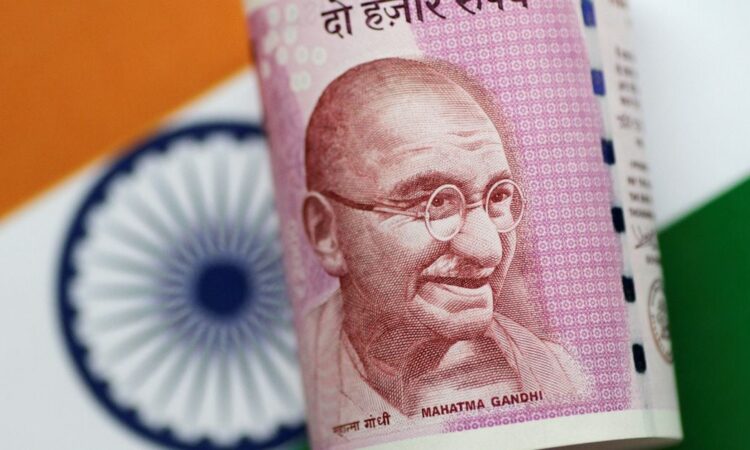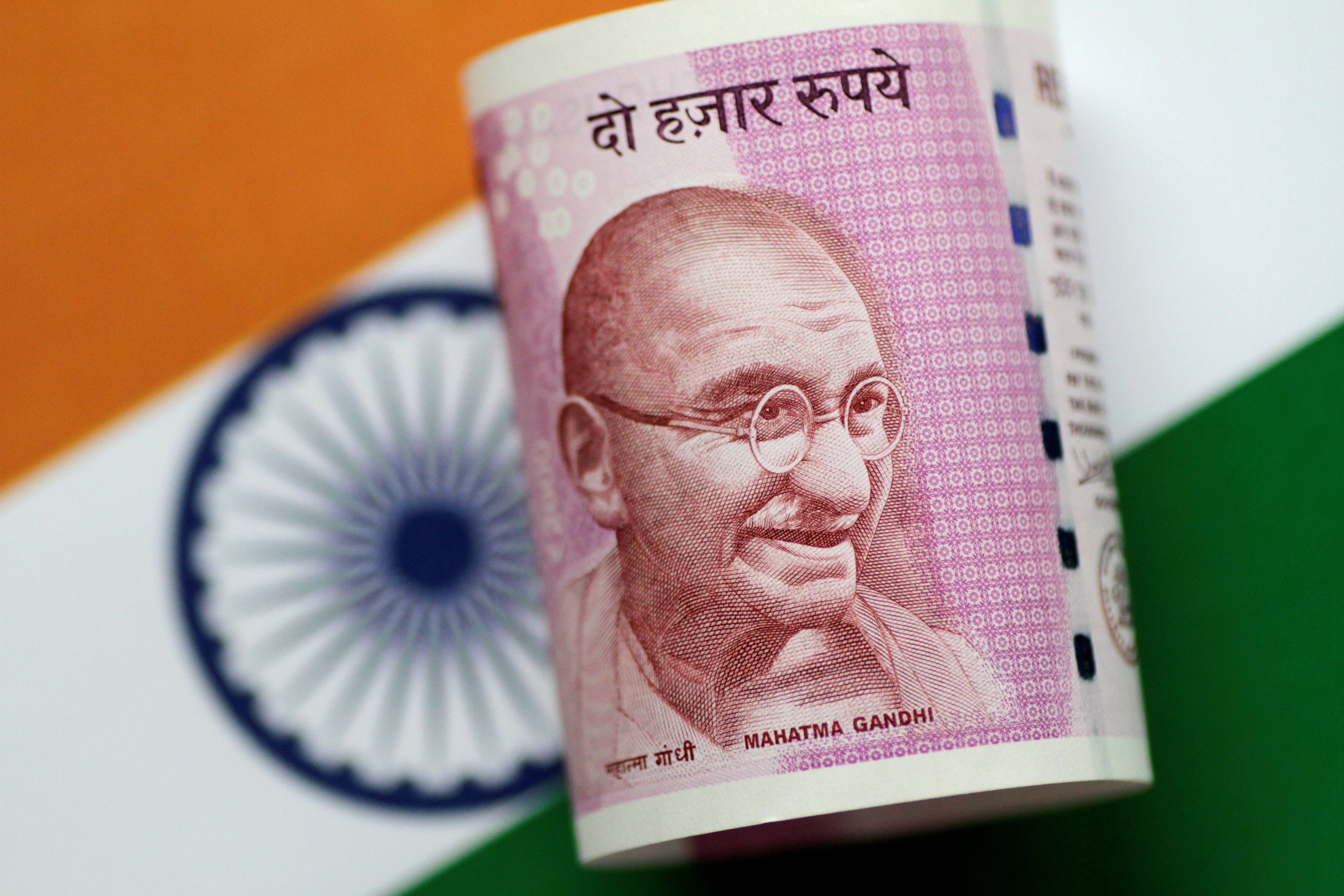

An India Rupee note is seen in this illustration photo June 1, 2017. REUTERS/Thomas White/Illustration/File photo Acquire Licensing Rights
MUMBAI, Oct 12 (Reuters) – The Indian rupee’s valuation against currencies of major trading partners has surged to a near two-year high on central bank intervention and elevated domestic inflation.
The rupee’s 40-currency real effective exchange rate (REER) shows the rupee was overvalued by 5.7% at September-end, according to the Reserve Bank of India’s monetary policy report released Friday. This is the most over-valued the rupee has been since November 2021.

The REER is computed using the nominal exchange rates adjusted for inflation.
The RBI regularly intervenes in the foreign exchange markets and stepped up intervention in September.
“Market intervention is to prevent excessive volatility and to see that there is orderly appreciation or orderly depreciation,” RBI Governor Shaktikanta Das said on Friday.
The rupee is currently at 83.1775, near its record low of 83.29 hit in October 2022.
“The RBI obviously is looking at a bunch of different factors (when they intervene)… to determine what is the right value of the currency. And so far, they seem to be of the view that the currency should not weaken,” Rahul Bajoria, Head of EM Asia (ex-China) economics research at Barclays Investment Bank, said.
“He (Governor Das) has been one of the most interventionist if you track monthly interventions, as well as the total amount of interventions done since he started,” said Shreya Sodhani, vice president of global research at Barclays Investment Bank.
Das took charge as RBI chief in December 2018.
The rise in inflation in September also aided the push upwards in the REER, analysts said.
“The September REER data is polluted by the recent spike in inflation in India relative to the other countries,” Vivek Kumar, an economist at QuantEco Research, said.
Brad Bechtel, global head of foreign exchange at Jefferies, said “a lot of the REER impact is obviously inflation”.
The RBI is unlikely to read too much into the elevated REER, economists said.
“I wouldn’t say it’s like an outlandishly overvalued currency,” Barclays’ Bajoria said.
“In the last few months, the REER has kind of been trending higher, but then it’s been reasonably rangebound over the last say, four or five years.”
Reporting by Nimesh Vora and Jaspreeet Kalra; Editing by Mrigank Dhaniwala
Our Standards: The Thomson Reuters Trust Principles.
